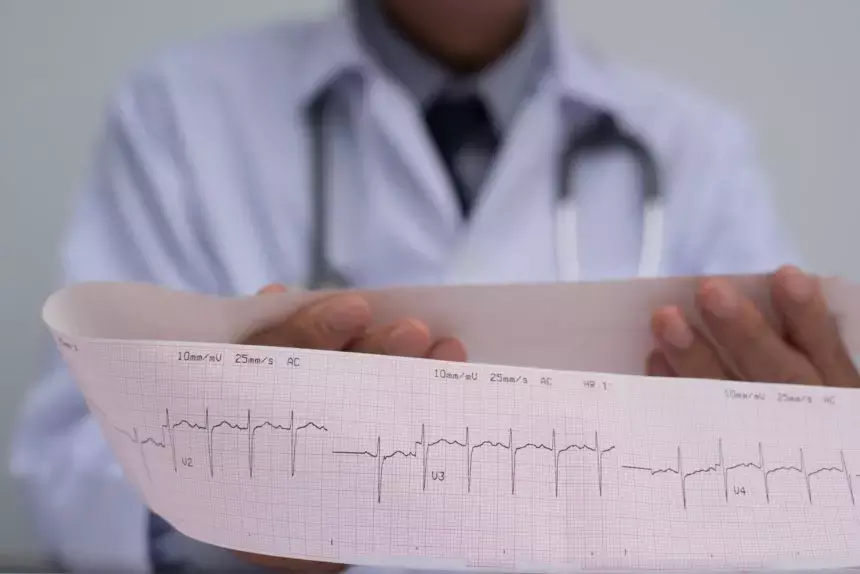- Home
- Medical news & Guidelines
- Anesthesiology
- Cardiology and CTVS
- Critical Care
- Dentistry
- Dermatology
- Diabetes and Endocrinology
- ENT
- Gastroenterology
- Medicine
- Nephrology
- Neurology
- Obstretics-Gynaecology
- Oncology
- Ophthalmology
- Orthopaedics
- Pediatrics-Neonatology
- Psychiatry
- Pulmonology
- Radiology
- Surgery
- Urology
- Laboratory Medicine
- Diet
- Nursing
- Paramedical
- Physiotherapy
- Health news
- Fact Check
- Bone Health Fact Check
- Brain Health Fact Check
- Cancer Related Fact Check
- Child Care Fact Check
- Dental and oral health fact check
- Diabetes and metabolic health fact check
- Diet and Nutrition Fact Check
- Eye and ENT Care Fact Check
- Fitness fact check
- Gut health fact check
- Heart health fact check
- Kidney health fact check
- Medical education fact check
- Men's health fact check
- Respiratory fact check
- Skin and hair care fact check
- Vaccine and Immunization fact check
- Women's health fact check
- AYUSH
- State News
- Andaman and Nicobar Islands
- Andhra Pradesh
- Arunachal Pradesh
- Assam
- Bihar
- Chandigarh
- Chattisgarh
- Dadra and Nagar Haveli
- Daman and Diu
- Delhi
- Goa
- Gujarat
- Haryana
- Himachal Pradesh
- Jammu & Kashmir
- Jharkhand
- Karnataka
- Kerala
- Ladakh
- Lakshadweep
- Madhya Pradesh
- Maharashtra
- Manipur
- Meghalaya
- Mizoram
- Nagaland
- Odisha
- Puducherry
- Punjab
- Rajasthan
- Sikkim
- Tamil Nadu
- Telangana
- Tripura
- Uttar Pradesh
- Uttrakhand
- West Bengal
- Medical Education
- Industry
Poor R-wave Progression Might Indicate Poor Cardiac Outcome

Sudden cardiac death (SCD) is a major cause of death and in many cases the first manifestation of heart disease. Coronary artery disease (CAD) is the most common underlying condition leading to SCD. However, most SCD victims do not present with an indication for implantable cardioverter-defibrillator before the fatal event.
A recent study suggests that Poor R-wave progression (PRWP) in electrocardiogram (ECG) was associated with SCD, cardiac death, and all-cause mortality in the general population. The study findings were published in the journal Heart Rhythm on February 15, 2022.
Poor R-wave progression (PRWP) in the precordial leads is a relatively frequent finding in the standard ECG. However, its prognostic significance remains unclear. Therefore, Dr Linda C. Schröder and her team conducted a study to examine the prognosis associated with PRWP in terms of SCD, cardiac death, and overall mortality in general population subjects with and without CAD.
In this study, the researchers collected 7217 patient data and 12-lead ECGs records from a Finnish general population health examination survey conducted during 1978–1980 with follow-up until 2011. The major endpoints assessed were SCD, cardiac death, and overall mortality. The researchers determined PRWP as R-wave amplitude ≤ 0.3 mV in lead V3 and R-wave amplitude in lead V2 ≤ R-wave amplitude in lead V3.
Key findings of the study:
- Upon analysis, the researchers observed that PRWP occurred in 213 subjects (3.1%).
- During the follow-up period of 24.3 ± 10.4 years, they noted that 3723 patients (54.3%) died.
- They found that the PRWP was associated with older age, higher prevalence of heart failure and CAD, and β-blocker medication.
- Upon multivariate analysis, they found that PRWP was associated with SCD (hazard ratio [HR] 2.13), cardiac death (HR 1.75), and all-cause mortality (HR 1.29).
- In the subgroup with CAD, they observed that the PRWP had a stronger association with cardiac mortality (HR 1.71) than in the subgroup without CAD.
- They further noted that the association with SCD was significant only in the subgroup with CAD (HR 2.62).
The authors concluded, "The main finding of the present study is that PRWP in an ECG is associated with increased mortality and a markedly elevated risk of adverse cardiac events in the general adult population. "
They further added, "The risk of SCD was pronounced in subjects with CAD, indicating that diagnostic measures regarding underlying CAD in subjects with PRWP may be warranted. The future role of PRWP in SCD risk stratification is still to be determined."
For further information:
Medical Dialogues Bureau consists of a team of passionate medical/scientific writers, led by doctors and healthcare researchers. Our team efforts to bring you updated and timely news about the important happenings of the medical and healthcare sector. Our editorial team can be reached at editorial@medicaldialogues.in.
Dr Kamal Kant Kohli-MBBS, DTCD- a chest specialist with more than 30 years of practice and a flair for writing clinical articles, Dr Kamal Kant Kohli joined Medical Dialogues as a Chief Editor of Medical News. Besides writing articles, as an editor, he proofreads and verifies all the medical content published on Medical Dialogues including those coming from journals, studies,medical conferences,guidelines etc. Email: drkohli@medicaldialogues.in. Contact no. 011-43720751


